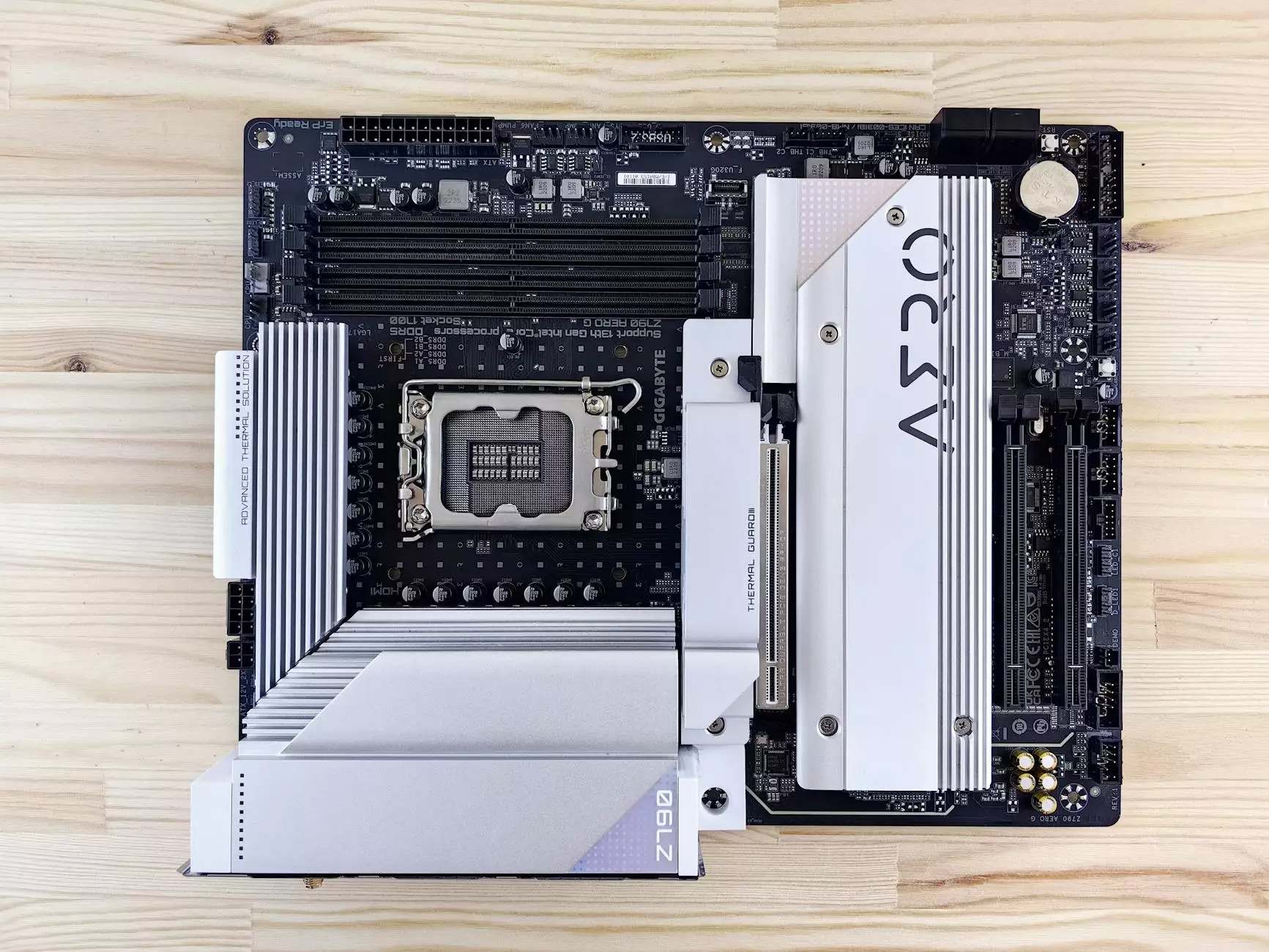Mastering Incentive Compensation Management for Business Success

Understanding Incentive Compensation Management
Incentive compensation management (ICM) is a critical aspect of business operations that focuses on the structuring, administration, and optimization of incentive pay plans. These plans are designed to motivate employees, align their performance with organizational goals, and enhance overall productivity. An effective ICM strategy is essential for driving desired behaviors and achieving strategic objectives.
Importance of Incentive Compensation Management
The significance of incentive compensation management extends far beyond mere numbers on a paycheck. Here are some compelling reasons why businesses should prioritize ICM:
- Employee Motivation: Well-structured incentives boost motivation and morale within the workforce, encouraging employees to exceed performance expectations.
- Alignment of Objectives: ICM aligns employee performance with the company’s strategic goals, ensuring that everyone is working towards a common purpose.
- Retention of Talent: Competitive incentive plans can help retain top talent by making employees feel valued and recognized for their contributions.
- Enhanced Performance: Incentives spur employees to strive for better results, which can lead to increased sales, improved customer satisfaction, and higher profitability.
- Data-Driven Decisions: Implementing ICM allows businesses to leverage data analytics to assess performance metrics, enabling informed decision-making.
Components of an Effective Incentive Compensation Plan
A robust incentive compensation management plan consists of several key components that, when implemented correctly, can yield significant benefits:
- Clear Objectives: Establishing precise and measurable objectives is essential to guide the development of the incentive plan.
- Performance Metrics: Determine the metrics that will be used to evaluate performance, such as sales figures, customer satisfaction scores, or project completion rates.
- Transparency: Employees should have a clear understanding of how the incentive plan works, including eligibility and payout criteria.
- Flexibility: The ability to adapt incentive structures in response to changing business conditions or employee feedback helps maintain relevance and effectiveness.
- Regular Reviews: Ongoing assessment of the plan’s effectiveness is crucial for continuous improvement and alignment with business goals.
Steps to Implementing a Successful Incentive Compensation Management System
Implementing a successful incentive compensation management system requires a systematic approach. Here are the key steps:
1. Assess Organizational Goals
Start by evaluating your company’s long-term and short-term objectives. Determine how an ICM plan can support these goals. For example, if one of your goals is to increase sales by 20%, your incentive plan should focus on rewarding high sales performance.
2. Engage Stakeholders
Involve key stakeholders, including management, HR, and employee representatives, in the development of the ICM plan. Their insights can help you create a fair and effective system that addresses the needs of both employees and the organization.
3. Define Performance Criteria
Choose specific, measurable, achievable, relevant, and time-bound (SMART) criteria for performance evaluations. This could include individual sales targets, team collaboration milestones, or customer service satisfaction ratings.
4. Develop the Compensation Structure
Create a compensation structure that outlines how incentives will be calculated and distributed. Consider various types of incentives, including cash bonuses, stock options, and non-monetary rewards such as additional vacation time or recognition programs.
5. Communicate the Plan
Effective communication is essential for the success of your incentive compensation management plan. Hold informational meetings and distribute written materials to ensure that all employees understand the objectives and mechanics of the program.
6. Monitor and Adjust
After implementation, regularly monitor the effectiveness of the plan through performance metrics and employee feedback. Be prepared to make adjustments as necessary to ensure that it continues to meet organizational needs and motivate employees.
Challenges in Incentive Compensation Management
While implementing an ICM plan can provide many benefits, there are challenges that businesses may face:
- Complexity: Designing an effective incentive program can be complex, as it requires a deep understanding of both employee motivations and business objectives.
- Cost Management: Balancing competitive incentives with budget constraints can be difficult, particularly in times of economic uncertainty.
- Resistance to Change: Some employees may resist changes to compensation structures, fearing that their earnings could decrease or that the new system may not be fair.
- Compliance and Regulation: Businesses must ensure that their incentive plans comply with legal regulations and labor laws, which can vary significantly by location.
The Role of Technology in Incentive Compensation Management
Technology has revolutionized the way businesses approach incentive compensation management. Here’s how:
1. Automation of Processes
Many organizations now use software solutions to automate the calculation and distribution of incentives. This minimizes human error and streamlines the entire process, allowing HR teams to focus on strategic initiatives rather than administrative tasks.
2. Data Analytics
Advanced analytics tools enable businesses to track performance metrics effectively and gain insights into the effectiveness of their incentive programs. This data can inform adjustments and drive decision-making.
3. Customization
With modern software solutions, organizations can customize their compensation plans to fit specific roles, departments, or even individual employees, thus enhancing engagement and satisfaction.
4. Reporting Capabilities
Robust reporting tools facilitate tracking and forecasting, allowing businesses to evaluate the financial implications of their ICM plans and make necessary adjustments proactively.
Case Studies of Successful Incentive Compensation Management
To illustrate the effectiveness of incentive compensation management, let’s examine a few case studies:
Case Study 1: A Sales-Driven Organization
A leading sales organization implemented a performance-based incentive structure that rewarded not only sales numbers but also customer retention metrics. This dual focus not only increased sales by 30% but also improved customer satisfaction ratings significantly.
Case Study 2: A Technology Firm
A technology firm faced high turnover rates and low morale. By transitioning to a transparent compensation model that included both cash and equity incentives tied to project deliverables, the company experienced a 20% increase in employee retention within a year.
Future Trends in Incentive Compensation Management
As the business environment evolves, so too will ICM strategies. Here are some key trends to watch:
- Personalization: More organizations will adopt personalized incentive plans that cater to individual employee preferences and motivations.
- Focus on Mental Health: Emerging trends will likely see companies incorporating wellness incentives into their compensation strategies, recognizing the importance of employees' mental health and overall well-being.
- Integration of Artificial Intelligence: AI-driven tools will become commonplace, providing predictive analytics to shape future incentive programs based on employee performance data.
- Greater Emphasis on DEI Initiatives: Organizations will focus on aligning their incentive programs with diversity, equity, and inclusion (DEI) goals, ensuring fair compensation practices across all demographics.
Conclusion: The Path to Enhanced Business Performance
In summary, incentive compensation management is not merely a function of human resources; it is a strategic imperative that can significantly enhance a company's performance. Implementing an effective ICM strategy can drive employee motivation, align performance with corporate goals, and ultimately lead to enhanced business results.
At InfinitySPM, we specialize in Software Development solutions that support robust ICM systems. By leveraging technology, data analytics, and ongoing feedback, we help businesses establish comprehensive incentive compensation frameworks that foster a culture of excellence and drive sustained success.
incentive compensations management








